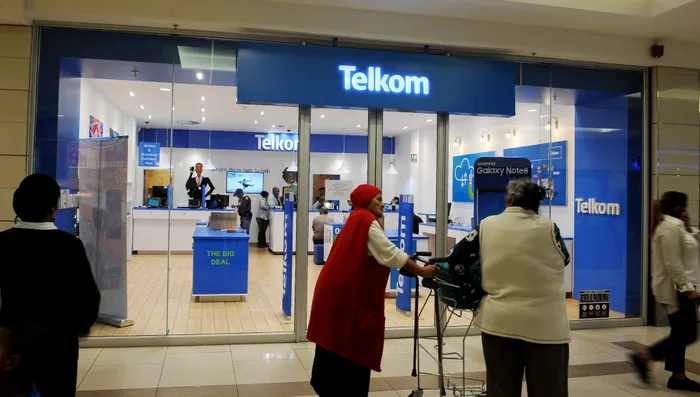
Telkom FutureMakers marks a decade of influencing South Africa's SME landscape, unveiling a staggering 153% growth in investment as it inspires innovation at national hackathons. Discover how this initiative is transforming communities and empowering the next generation of entrepreneurs.
Image: Tracey Adams/Independent Newspapers
The landscape of small and medium enterprises (SMEs) in South Africa received a notable boost as Telkom reveals a remarkable 153.4% surge in its enterprise and supplier development investment in the 2025 financial year.
This growth has largely stemmed from the innovative work of its flagship initiative, Telkom FutureMakers, which celebrates its 10-year anniversary this year.
Launched in 2015 with an initial R250-million investment, the Telkom FutureMakers Programme has been instrumental in driving economic growth through the incubation of ICT-based SMMEs.
Over the past decade, it has supported 459 youth- and women-led enterprises, opening doors to R859 million in procurement opportunities.
The initiative has nurtured more than 2,600 black-owned SMMEs, highlighting its commitment to transforming the socio-economic landscape in South Africa.
“Telkom FutureMakers has had a real impact on people's lives for more than a decade,” said Dr Mmaki Jantjies, Telkom Group Executive: Innovation and Transformation.
“This year, we created 6% more job opportunities compared to the previous year.”
According to the Telkom Integrated Report 2025, FutureMakers plays a crucial role in Telkom’s socio-economic endeavours, contributing to over 73,890 job opportunities and directly impacting 251,275 lives through SMME spending.
This initiative not only enhances Telkom’s supply chain but also fosters digital skills and drives sustainable transformation across South Africa’s economy.
To commemorate this milestone, Telkom is hosting a series of hackathons throughout September, encouraging young coders, tech enthusiasts, and students from various educational institutions, including universities, universities of technology, and TVETs, to ignite their entrepreneurial spirit.
These events aim to foster innovation and identify start-up potential within the ICT sector, allowing participants to develop solutions to real-life challenges.
Telkom anticipates attracting around 700 contestants to both physical and virtual events, where they will collaborate with Telkom staff, mentors, and the implementation partner Geekulcha to tackle pressing business and social challenges.
Solutions that emerge from these hackathons will be earmarked for incubation.
“Hackathons encourage upcoming technopreneurs to develop creative ideas and technological solutions, equipping them to compete in the demanding telecoms space,” Dr Jantjies added.
“By aligning technology, innovation, and SME empowerment, Telkom is helping to shape change in the industries of the future, such as fintech, healthtech, e-commerce, edtech, gaming, and cybersecurity.”
Dr Jantjies also said that the initiative's focus on developing talent and empowering innovative entrepreneurs to become drivers of growth and development in their communities.
“It’s about nurturing the next generation of leaders,” she further said.
BUSINESS REPORT